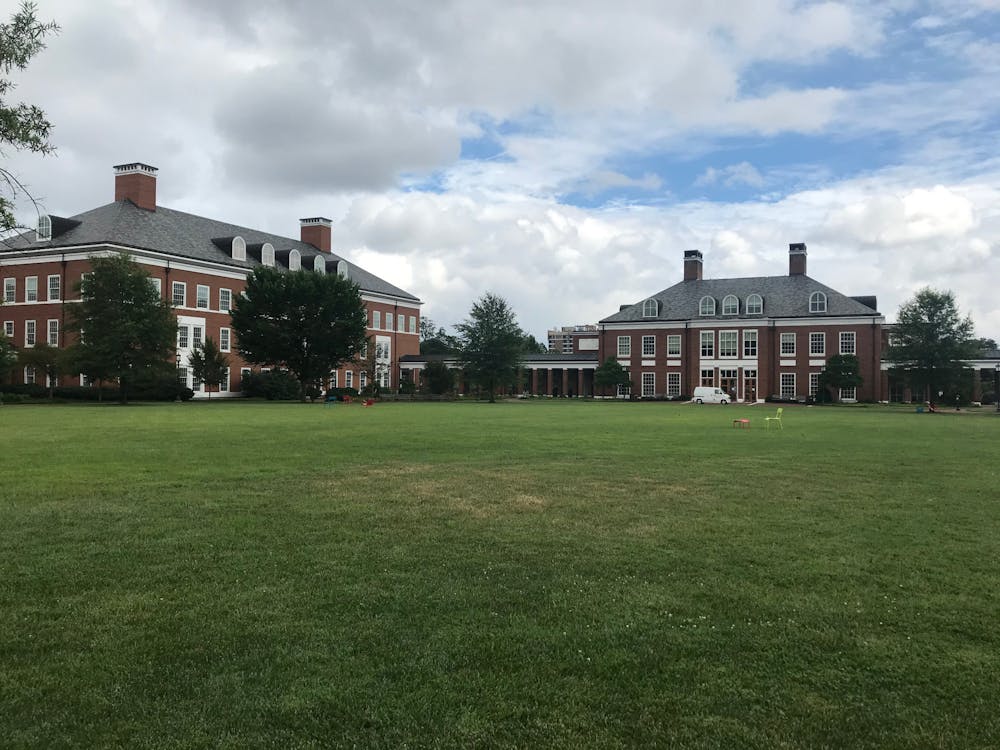
It’s hard to believe that a month of college has passed. In my first article, I wrote that keeping track of time during quarantine had become a hobby; certainly in this first month, that hobby has become a sport.
In my first two weeks, I realized how easy it was to stay up until an obscene time at night. In my third week, I gave up trying to discern days from each other, and I spent the end of this week wondering why the calendar said October when it felt like August. With each week, texts have become sparser and phone calls shorter.
Of course, the rigor of college is nothing like that of high school; even with warning, it’s hard to fathom just how much more demanding college really is. So maybe this should have been expected. But it’s easy to see that in a normal year, our experience would not have been nearly this mind-numbing, largely because of the one thing we all seem to be missing: socializing.
In high school most of the day was spent socializing. Even (if not especially) at the most stressful times, interacting with friends gave us built-in stress reducers that distracted us from the monotony of school. No two conversations were ever the same, and memorable interactions gave us something to separate the days.
The pandemic has destroyed those modes of interaction, stripping the school experience to its bare bones: sleeping, eating and studying ad nauseam. Socializing takes extra effort, effort that seems to have more and more resistance as the semester progresses. And it isn’t just me who feels that way. I interviewed Kobi Khong, freshman class president of the Student Government Association, to better understand his experience as arguably one of the most social freshmen at Hopkins.
“It’s really easy to just fall off the face of the planet sometimes,” he said to me.
Indeed, Zoom fatigue is real, and it is inevitable that we’ll be overwhelmed by 12-hour days filled with video calls. And because it’s impossible to run into someone as we usually would on campus, every relationship needs to be actively cultivated, or else it vanishes. So on top of a towering pile of assignments, socializing becomes as much an outlet for stress as an exhausting chore.
Socializing in class is an equally challenging task. Breakout rooms — supposedly the few authentic opportunities we have to socialize with classmates — are usually everything short of authentic. My friend Zara Hamid and I usually find ample time each week to complain to each other about those infamously awkward interactions. We agree that even at their best, they do little to replace the real thing.
“I don’t think we spend enough time in breakout rooms — or consistently with the same people in breakout rooms — to form any sort of connection,” she said.
Breakout rooms aren’t designed to make lasting friendships; in fact, they aren’t even designed to get students to know each other. In a two-minute breakout room, the first 30 seconds are invariably spent waiting to see who will speak first, Mexican-standoff-style. Therefore, in most cases, there is barely enough time to discuss answers before we’re notified to move back to the main room. Forget about getting to know peers. The following class, the breakout room doesn’t have the same people. So even if small talk were successful last class, you have to start anew this time.
Rida Chowdhury, a fellow board member in the Biomedical Engineering Society, finds every opportunity she can to socialize as an international student living in Dhahran, Saudi Arabia. Yet she has noticed that in breakout rooms, people don’t really talk about themselves even when they have the chance.
“Everyone just focuses on the problems,” she said.
Therefore, she argues, there is neither any real opportunity nor any impetus to get to know one another. And as always the result is painful awkwardness.
Much of this is intrinsic to online education. I have found it exhausting to interact with my friends no matter the mode or frequency of communication. Likewise, many of the shortcomings of breakout rooms stem from the fact that lecture classes are obviously designed to teach material, not make friends. Any changes to the in-class environment would affect course content itself, making it harder for someone like me — who benefits from synchronous lectures — to keep with the pace of college classes.
But there is room for improvement. Hamid says that facilitating social interactions should fall more on clubs and administration, not on professors; she notes that student organizations have been her primary outlet for making friends. She and Khong both cited movie nights — especially on platforms like Netflix Party — and online games like Among Us, a popular multiplayer deduction game that Hamid says forces players to get comfortable with each other.
Chowdhury stated that, especially for international students like herself, Hopkins could provide greater variety in the timings of social events. This would make it more convenient to meet new people in different parts of the world.
Even breakout rooms can be improved. Professors could place students in the same breakout rooms every class, giving students the opportunity to build more intimate relationships with a handful of their peers. For lab and PILOT sessions, where discussion trumps content, session leaders could allow students to choose their own breakout rooms so that they can discuss problems with those they are most comfortable with. Some of the responsibility should also fall on students themselves. If circumstances and bandwidth permit, students should leave their cameras on.
In such stressful times, we look to college not only for a new academic experience but also for an exciting opportunity to meet new people. Yet the unremarkable blur of quarantine seems to be spilling into the school year. It is therefore important for students, faculty and on-campus organizations alike to understand where the issues lie — what each of us can do to make our own experiences and those of our peers more enjoyable. Especially during a pandemic, we must remember that being socially distanced need not mean that we are socially distant.





